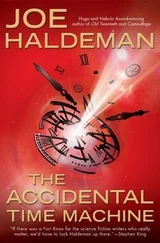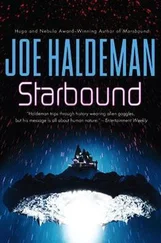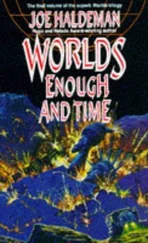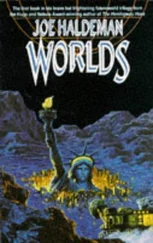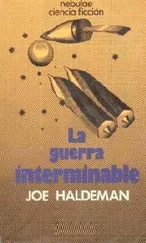She smiled. “Okay. Words of one syllable?”
“We sent them a message and they sent it back. Can I say ‘message’?”
“So far so good.’
“It came back with absolutely no distortion. We couldn’t do that. Period.”
Marya shut her eyes and pinched the bridge of her nose. “Yeah, right. I remember.” She waggled a hand in front of one of the cameras. “Off the record, Rory, we couldn’t really punch that up.”
“They intercepted a signal that was ’way blue-shifted, in a relativistically accelerated frame of reference. They recorded it and re-broadcast it with exactly compensating distortion. The signal we got back was absolutely the same as the one we’d sent.”
Marya laughed and shook her head. “Jesus, Rory. Would you come join the world for a minute? The real world?”
“Okay.” Rory smiled, too. “So you couldn’t ‘punch it up.’”
“Look. It’s worse than that. We have to think of counter story. We run your version and three out of six tabloids are on us like clothes from Kmart. ‘We got exactly the same signal.’ So where do you think they’ll say it came from? Outer space?”
“Of course it came from outer space.”
“No way in hell. It came from you.”
“What?”
“You’re trying to stay in the spotlight. So you generate a story.”
“God, can you hear yourself? That’s so ridiculous.”
“It’s not, Dr. Bell,” the cameraman said. “People want to think conspiracy. Want to be on the inside. You can sell any goddamn thing if it’s against the establishment.”
“ I’m the establishment?”
“You’re authority,” Marya said. “Bobby’s right. Best way for you to get that story out would have been to let somebody else announce it and you hotly deny it.”
Rory realized she was standing, and sat down. “It’s so Alice in Wonderland. So what do we do?”
“Just what we’ve done here. We didn’t punch it up, so when we repeat it next week, it’s backstory. It’s routine, so it must be true.”
“ That’s when people point out how important it is,” Bobby said. “Do it all the time, in politics.”
“As if I, or we, didn’t understand how important it was at the time.”
“You don’t have to go that far,” Marya said. “Just don’t punch it up for now, and later it’ll look like you’ve been cautious. Conservative.”
“Okay. You’re the boss.”
Marya smiled and nodded to the cameraman. “Good evening. It’s exactly one month since the discovery of the Coming, and so we’ve left the blizzards of New York to revisit Dr. Aurora Bell at the University of Florida…”
 Marya
Marya
The interview went pretty well, though they had to ask Rory to repeat some things in simpler and simpler terms. They got out by ten, though; only fifteen minutes later than they’d expected.
And about two minutes late on the parking meter. Marya saw the big white tow truck from half a block away, checked her watch, and broke into a run.
It was a heavy-duty floater with a bed big enough to hold a large passenger car. It could park parallel to a car and, using a kind of built-in forklift, pick it straight up and haul it aboard in no time.
Marya got to him just as he was raising the car. He was a young black man. Her intuition weighed charm versus indignation as she ran up to the driver’s-side window. “I’m sorry, mister. I got held up just a minute or two.”
The man looked down at her wearily. “You’re gonna get held up, you oughta park on campus. Park on the street and I get the call soon as your time’s up, automatically. You didn’t know that.”
“No. I’m from New York.”
“Well, enjoy the sunshine. You can pick up your car at the police lot anytime after twelve. Bring four hundred bucks and be prepared to spend a couple hours.”
“Oh.” She smiled. “The press card on the windshield doesn’t…”
He gave a little start of recognition. “No, Miz Washington. Nobody escapes the wrath of the Gainesville Police Department.”
The cameraman had caught up with her. “Couldn’t we just pay the fine here, and be on our way?”
“What, is that the way they do it in New York?”
“No,” he said. “In New York we pay a little extra.”
“Like five instead of four,” Marya said. She folded up a single bill and offered it.
The driver looked up and down the street, and then pushed forward on a big lever between the seats, and the car eased back down to the ground. He took the bill and slipped it into his shirt pocket.
He picked up a wand from the dashboard. “Give me dispatch.”
 Rabin
Rabin
Sergeant Rabin walked up to the dispatcher’s desk. The woman was grinning and shaking her head while she talked. “Yeah, some of those meters. It’s a crime. Hasta luego.” She took off her headset and tossed it on the desk. “Those tow-truck guys make more than the mayor.”
“You know it. Got a gun for me?”
“Down here.” She opened a drawer and lifted out a white box labeled EVIDENCE. “What’s the story?”
He opened the box and took out the pistol. “Murder weapon, probably. Tossed in Lake Alice.” Bright chrome revolver, maybe fifty years old. “Some kids in a biology class saw it in the shallows and fished it out.”
He pointed at the short barrel, a duller metal, slightly rusted. “This is cute. Forensics says it’s a homemade barrel, smooth bore, a little bigger than the .44 Magnum bullet.”
“So you couldn’t trace it?”
“Maybe, but it doesn’t make sense. We find a .44 bullet in somebody that doesn’t show any trace of rifling, we know it came from this gun.”
“Have a body?”
“Not yet. But this thing wasn’t in the water more than a day or two. So we’re looking.”
“Buena suerte.”
“Yeah. Meanwhile, I get to take this around to the local dealers and pawnshops, see if anyone says, ‘Oh, sure, I sold that to John Smith last week.’”
“Sounds like a fun job.”
“I think ‘shit job’ is the technical term. But maybe I can do some Christmas shopping in the pawnshop. Buy the kids a couple of matching pistols.”
“Start ’em out right.” Rabin had four-year-old twin daughters. The phone rang and he waved good-bye.
There were two pawnshops just a few blocks down Sixth, so he decided to leave the squad car and walk. Get lunch down there, too.
It wasn’t the best part of town, but they didn’t put pawnshops in the high-rent district. Or police stations. It amused him to walk along in uniform and watch people’s expressions. Trying to look innocent was a real strain on some of them.
There were two large shops next door to one another. He went to the farther one first; the owner was a likable enough guy.
He stepped into the cold air. They probably kept the airco cranked up to minimize the attic smell, mildew and dust. Gun oil and furniture polish. Rabin was fascinated by the places, but not the weapons counter. All the biographies scattered around. Life stories, death stories. Complete tool sets, well-used musical instruments, fancy camera and cube sets. You got so little on the dollar for them, their owners had to be dead or desperate. Or thieves.
The bell when the door closed brought the owner out of a back room. “Qabil. What can I sell you? Can I buy your gun?”
“Yeah, and my thumb, too.” His weapon was keyed to his thumb-print. “Check this out?” He put the box on the glass case full of handguns.
Читать дальше
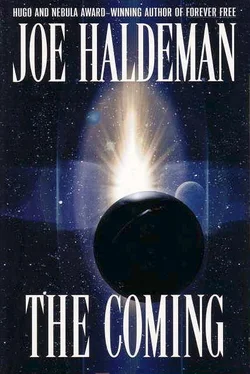
 Marya
Marya